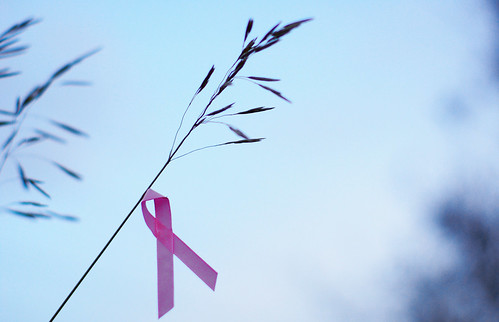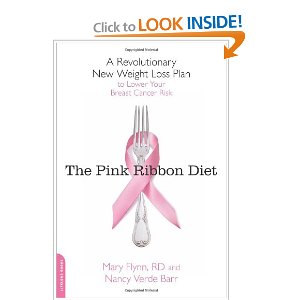October 11, 2010
I love pink more than most people, so I'm totally in my zone during the October pink frenzy in support of Breast Cancer Awareness.
I thought this article by Heather Moore titled “Beware Corporate Pinkwashing” was so on target though. It reminds us that many companies have good intentions, but there are also companies who will take advantage of the “pinkwashing” trend, and are actually selling products that are dangerous or harmful to us. For example, the article notes that “Earlier this year, KFC even sold its Kentucky Grilled Chicken, which is known to contain carcinogens, in pretty pink buckets.”
Besides reminding us to be aware that not all “pinkwashed” products are pretty and good for us, I think it's really important that the article reminds us to focus on what the risk factors are for breast cancer, and how we should keep that in the front of our minds right now; as much as we love pink and love supporting the pink cause. Here's what Heather says:
Numerous studies have shown that women who eat mostly fruits, vegetables, and soy foods are much less likely to develop breast cancer than women who eat meat, eggs, and dairy products. National Cancer Institute researchers have found that women who eat meat every day are nearly four times more likely to get breast cancer than those who don't.
Other leading researchers in both America and Asia concur that women who eat a typical Western diet – high in meat, fat, and sugar – face a higher risk of breast cancer than women who eat a typical Asian diet, which is high in soy and vegetables. Renowned nutrition expert Dr. Dean Ornish reports, “In Japan and other countries where the consumption of animal fat is much lower, breast cancer is rare.”
Eating fatty foods, animal protein, and heavily processed foods can boost one's risk of breast cancer and other diseases, while eating plant-based foods can lower it. Plant-based foods are typically low in saturated fat and high in fiber and phytochemicals, which knock out carcinogens and fight inflammation. Going vegan can even help women who have been diagnosed with breast cancer beat the disease.
Studies also show that vegans are nine times less likely to be obese than meat-eaters are, and maintaining a healthy weight is key to preventing breast cancer.
What can we do? First, go read the rest of the article.
Second, order this book: The Pink Ribbon Diet: A Revolutionary New Weight Loss Plan to Lower Your Breast Cancer Risk which focuses on a plant based olive oil (PBOO) diet. The PBOO diet concentrates primarily on foods that can lower the risk of breast cancer or prevent its recurrence, while omitting foods associated with risks.
So, my take-away from Heather's article is that while I adore the plethora of pinkness, I should be alert to pinkwashing. And most importantly, I need to remember that Breast Cancer Awareness Month isn't all about the pink as much as it is about avoiding this disease as far as it is in our power to do so! That starts with eating a plant-based diet that is low in meat, fat, sugar and processed foods. We can do that!
Photo credit: pfala
- Leave a Comment (0)
- Find more in Health, breast cancer








